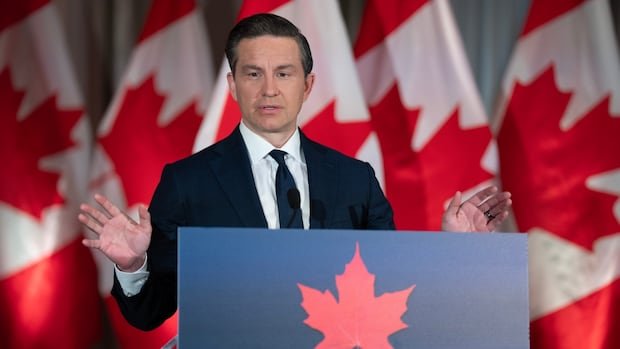Conservative Leader Pierre Poilievre is advocating for stricter immigration regulations, emphasizing the necessity of imposing “very hard caps” on the number of newcomers entering the country. Poilievre expressed his views during a press conference in Ottawa, highlighting the challenges faced in integrating newcomers and suggesting a need for more individuals leaving the country than arriving to allow for adjustment.
Poilievre has been vocal about his disapproval of the previous Liberal government’s management of immigration issues. He pledged to rectify what he deemed a “broken” system during the last election campaign.
Addressing the media, Poilievre underscored the importance of controlling immigration levels and achieving negative net migration under Prime Minister Mark Carney’s leadership. He stressed the urgency of this approach to manage the current division within the country resulting from heightened immigration rates post-COVID.
Pointing to the significant population growth in recent years, Poilievre cautioned against uncontrolled immigration and emphasized the necessity of absorbing newcomers at a manageable rate. He criticized the Liberal government’s perceived leniency on immigration levels, which led to a notable increase in admissions compared to past years.
Recent statistics indicate a considerable rise in Canada’s population, predominantly driven by a surge in non-permanent residents, including international students and low-wage foreign workers. The strain on resources and infrastructure due to this growth prompted the previous government to scale back the intake of temporary foreign workers and students.
As a result of these measures, there has been a marked slowdown in population growth, with the rate reaching 0.0 per cent in the first quarter of the current year. Carney has committed to maintaining these restrictions, aiming to cap non-permanent residents at five per cent of the total population by the end of 2027.
The proposal to reduce the percentage of non-permanent residents to five per cent signals a further decline in the admission of international students and temporary workers. Poilievre supports more stringent reductions, advocating for an immigration policy that prioritizes the interests of Canada and Canadians by admitting the right individuals in appropriate numbers.
In summary, Poilievre’s call for stringent immigration controls reflects a broader debate on the need to balance population growth with societal integration and economic sustainability in Canada.

